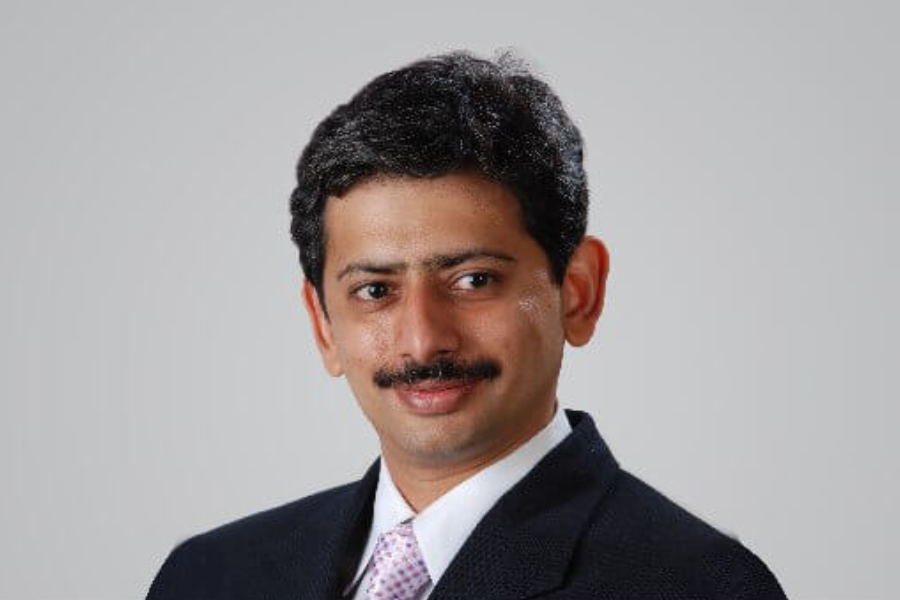CBG is not a priority sector lending to the banks
As of 2022, the market for compressed biogas (CBG) was estimated to be worth US$ 56.6 million, and by 2031, it is anticipated to be worth US$ 319.2 million. India ranks seventh in the world for producing biogas, but it hasn’t been able to fully realise its promise as a useful substitute for burning biomass and LPG. The widespread use of biogas has been hampered by a lack of technological improvements and expensive installation prices.
The market value of CBG is influenced by how competitive it is with other fuels, such as natural gas or conventional fossil fuels. The same can be impacted by government regulations, incentives, and subsidies aimed at encouraging renewable energy sources and lowering greenhouse gas emissions.
India Business and Trade spoke with Mr. Chandrasekhar Nandigama, Founder and Director, Jivoule Biofuel, on the need for investments in CBG projects, technological advancements, and how research and development efforts can impact the overall supply chain and market value.

Photo Credit: Jivoule
IBT: Biofuel holds much potential in India’s renewable energy market. However, there are different challenges to it like lack of raw material and high prices of feedstock. How do you perceive India’s biogas industries growing with these challenges?
Chandrasekhar N.: The biofuels sector in our country holds significant untapped potential. There’s an undeniable demand and opportunity within this space. India’s heavy reliance on imported fossil fuels drains our foreign exchange reserves, making biofuels a promising alternative. Nonetheless, the reality on the ground presents challenges. The pace of project implementation is sluggish, attributed to various complex issues stemming from the nascent nature of the industry and its underdeveloped ecosystem. While policies exist, they remain largely high-level and are yet to be effectively enforced to drive substantial production outcomes. To catalyze progress, we must compile tangible case studies showcasing successful instances of biofuel and compressed biogas (CBG) production. Sharing these success stories can inspire and encourage new entrepreneurs to venture into this domain. Simultaneously, existing entrepreneurs could be motivated to establish additional projects, thereby addressing bottlenecks and driving industry growth in a more impactful manner.
IBT: So, what made you get into this industry in the first place knowing these challenges are there?
Chandrasekhar N.: Having spent nearly a decade in the United States, I had the opportunity to immerse myself in the realm of renewable energy. Throughout my pursuit of a master’s degree and subsequent professional engagements, I acquired a wealth of exposure and skills in this field. This exposure, coupled with the growing entrepreneurial drive within me, led me to a pivotal decision – to contribute to my home country. Simultaneously, I was drawn to the sustainability sector, which ultimately guided my entrepreneurial journey. As I delved into research, the potential of biofuels emerged as a promising avenue. The notion of harnessing India’s indigenous resources and feedstocks to create biofuels struck a chord with me, giving rise to the inception of Jivoule Biofuels. Since its inception, my path has been marked by challenges that I continue to navigate. My journey remains a work in progress, with my sights set on achieving significant milestones in the pursuit of a greener and more sustainable future.
IBT: The U.S. and Brazil are one of the biggest producers of biofuel. How do you perceive the international market growing into this industry in comparison to India?
Chandrasekar N.: Effective execution is paramount in this context. While projects may be initiated, the puzzling aspect is why they often struggle to materialize in India. Elsewhere, project teams rally around a shared vision and a comprehensive execution plan, fostering a collaborative ecosystem. Conversely, in India, endeavours often unfold in isolated chambers, hindering progress. Despite India’s inherent potential, certain stumbling blocks hinder the alignment of our market with international standards. Challenges include the reluctance of banks to extend loans, the presence of policies that lack enforcement, and the dismissal of feedstocks as waste. Remarkably, the procurement of feedstock for industrial purposes often proves costlier than the biofuel itself. These challenges, rarely observed in other countries, are conspicuous here, necessitating concerted efforts to surmount them.
IBT: What were some of the challenges and also what kind of preparation did you undertake to establish a biofuel company knowing that this industry is still restricted?
Chandrasekar N.: I invested significant time in technology research and thorough market analysis. I engaged on the ground to understand the complexities of the biofuel sector comprehensively. In-depth groundwork provided valuable insights, aiding my adept navigation of this diverse industry. Utilizing specific governmental policies, I’m currently in the process of establishing biogas and CBG (Compressed Biogas) plants. A CBG plant is underway in Hyderabad, and simultaneously, discussions are progressing with potential partners to set up similar facilities in other cities. This journey is an ongoing evolution, marked by continual learning and adaptation. I remain open to refining my strategies, recognizing that even well-founded assumptions about market demand warrant validation through practical testing.
IBT: You’re also actively working towards popularizing CBG solutions at a commercial level. What would you expect from the central government and the state government to help the CBG industry thrive?
Chandrasekar N.: The introduction of India’s biofuels policy in 2018 was a significant turning point. Prior to this, the absence of policy and awareness made venturing into this field a risky proposition for me as an entrepreneur. The policy’s arrival in 2018 instilled confidence and served as a catalyst to pursue my aspirations. I undertook the revival of a biogas plant in Tamil Nadu, leveraging my technology and production expertise to breathe new life into the facility and yield biogas, subsequently converted into power. Presently, we are engaged in producing CBG from organic waste resources in Hyderabad. Our versatile technology caters to various feedstocks, allowing us to establish biogas plants and generate CBG for oil manufacturers and city gas distribution companies. With this model, I’m actively expanding my plans to cover multiple locations.
My immediate objective centres on achieving commercial CBG production in Hyderabad by early next year. Simultaneously, I aim to supply CBG to additional cities and states, collaborating with municipal corporations and aspiring to establish plants within each respective region.
IBT: There are several PLI schemes in renewable energy, to support component production and manufacturing. What would you expect from the central or the state government?
Chandrasekar N.: While CBG is categorized as a priority sector for lending by both the central government and the Reserve Bank of India (RBI), the practical implementation doesn’t always align with this norm. Despite the designation, banks often hesitate to provide loans for CBG projects due to their own uncertainties about the sector’s viability and profitability, as well as its alignment with the Purchasing Manager’s Index (PMI). This is where governmental intervention becomes crucial – backing CBG projects would not only stimulate the industry but also ensure its financial and operational feasibility.
Moreover, emphasis must be placed on promoting the utilization of CBG. Effective communication is vital, reaching all stakeholders including the general public. Their involvement is integral as waste segregation at the household level is a key component. Organic waste, once segregated, can be redirected to CBG plants within cities, where the CBG is produced locally and can be consumed within the same area. Recycling waste scientifically bears substantial benefits for consumers, making it a journey that necessitates participation from all corners.
Chandrasekhar Nandigama is the founder and director of Jivoule Biofuels. After completing his B.tech in Chemical Engineering from Osmania University, Hyderabad, India, Chandrasekar pursued M.S Chemical Engineering from Missouri University of Science and Technology, U.S. The company, Jivouel became operational in 2020, and as of March 2023, the Atal New India Challenge (ANIC), NITI Aayog selected AIC-IIITH’s social startup Jivoule Biofuels, a Hyderabad-based green energy company for funding of Rs 2.5 crore.













Leave a comment